Educational implementation of Variational Autoencoder (VAE) for the MNIST dataset, supporting both fully connected (FNN) and convolutional (CNN) architectures. It includes training, evaluation, and empirical analysis.
- Train VAE models (FNN/CNN) on MNIST
- Configurable loss functions (BCE, MSE)
- Checkpointing and logging
- Empirical evaluation notebook
- Utilities for loading checkpoints and configuration
main.py: Entry point for trainingmodel_fnn.py,model_cnn.py: Model definitionstrainer.py: Training loop and logicutils/: Utility scripts (checkpoint loading, YAML config)empirical_eval.ipynb: Notebook for empirical evaluationdata/: MNIST dataoutputs/: Model checkpoints, logs, generated samples
- Clone the repository
- Install dependencies:
pip install -r requirements.txt
- Training:
python main.py --config config.yaml
- Empirical Evaluation:
Open
empirical_eval.ipynbin Jupyter and run the cells.
Edit config.yaml to change model, training parameters.
See requirements.txt for Python dependencies.
- FNN-VAEs and CNN-VAEs were trained with both MSE and BCE losses.
- For each model, we visualize:
- Reconstruction of real images (original vs. generated)
- Generation of new images by sampling from the latent space
| Model | Loss | Reconstruction Example | Generation Example |
|---|---|---|---|
| FNN | BCE | 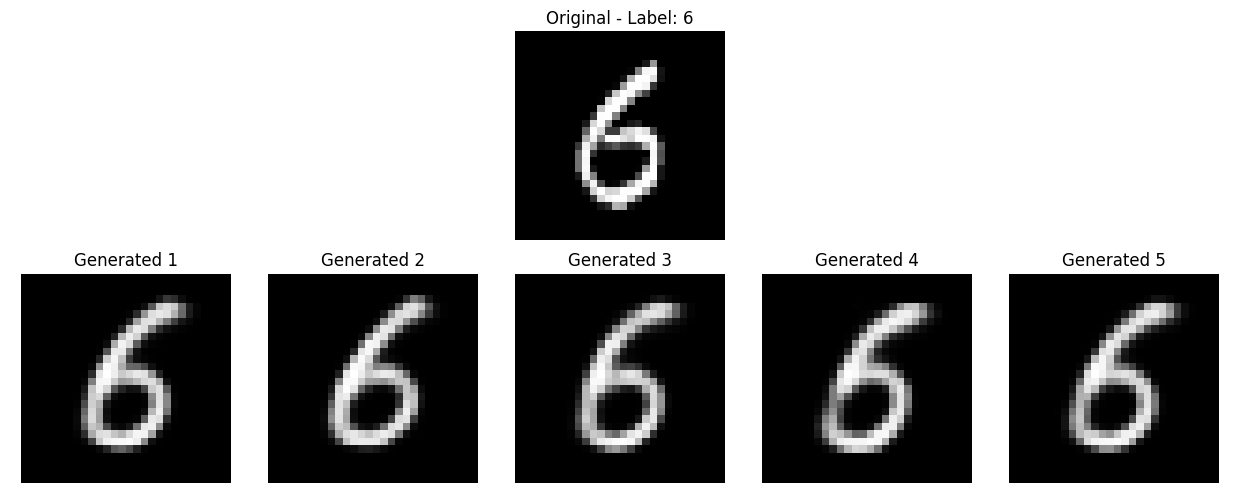 |
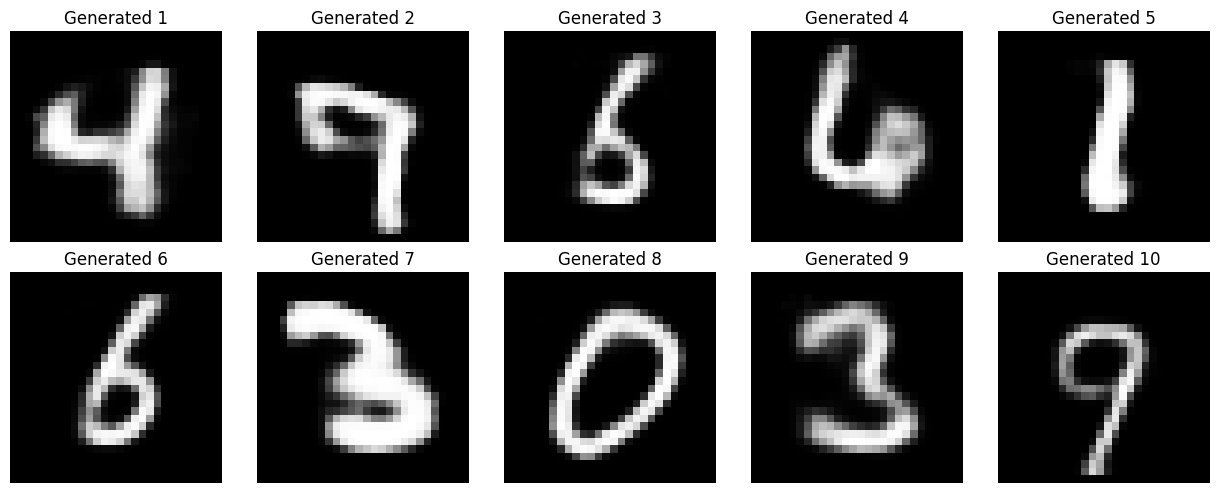 |
| FNN | MSE | 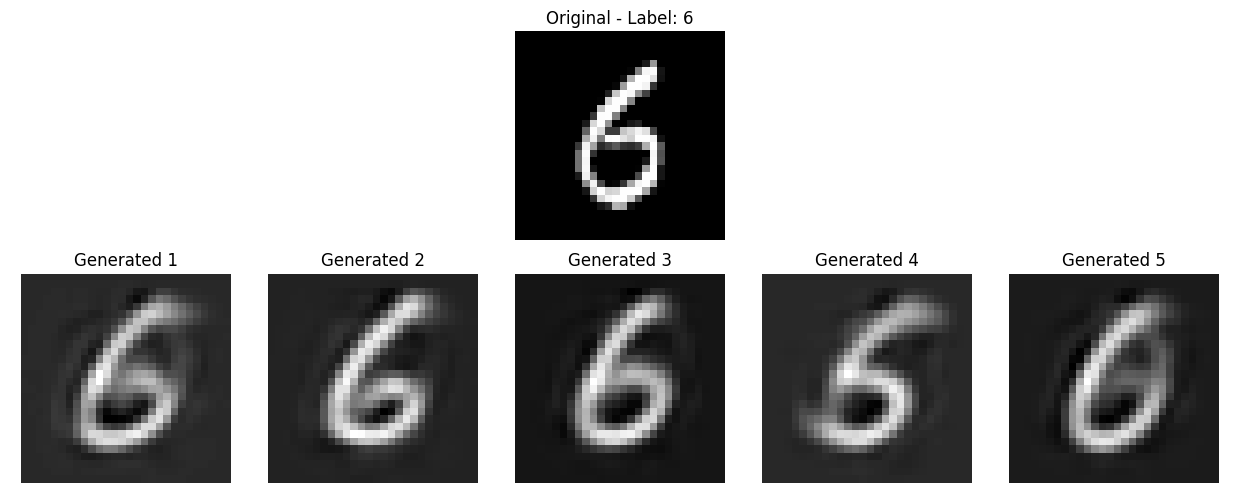 |
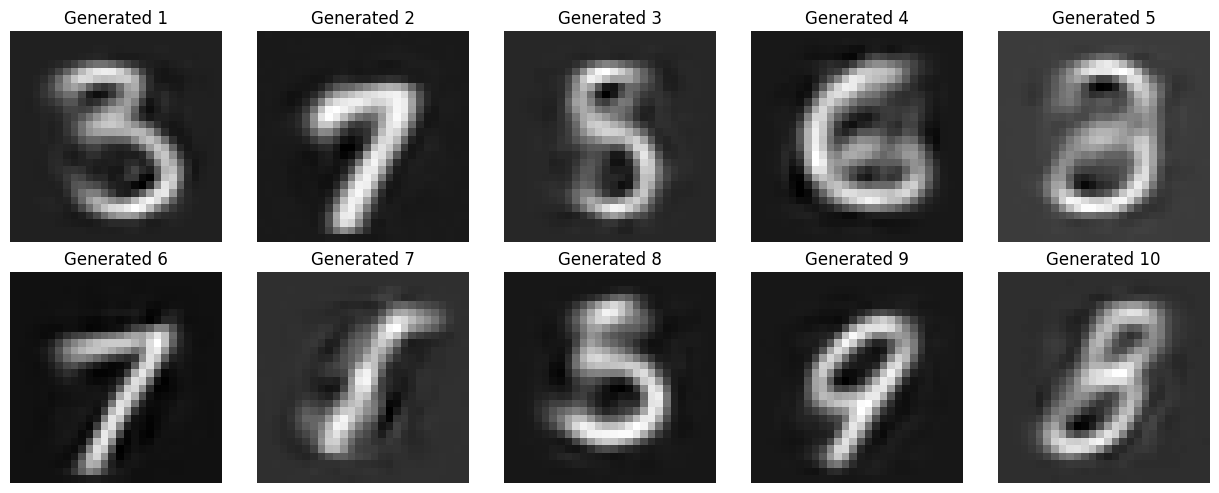 |
| CNN | BCE | 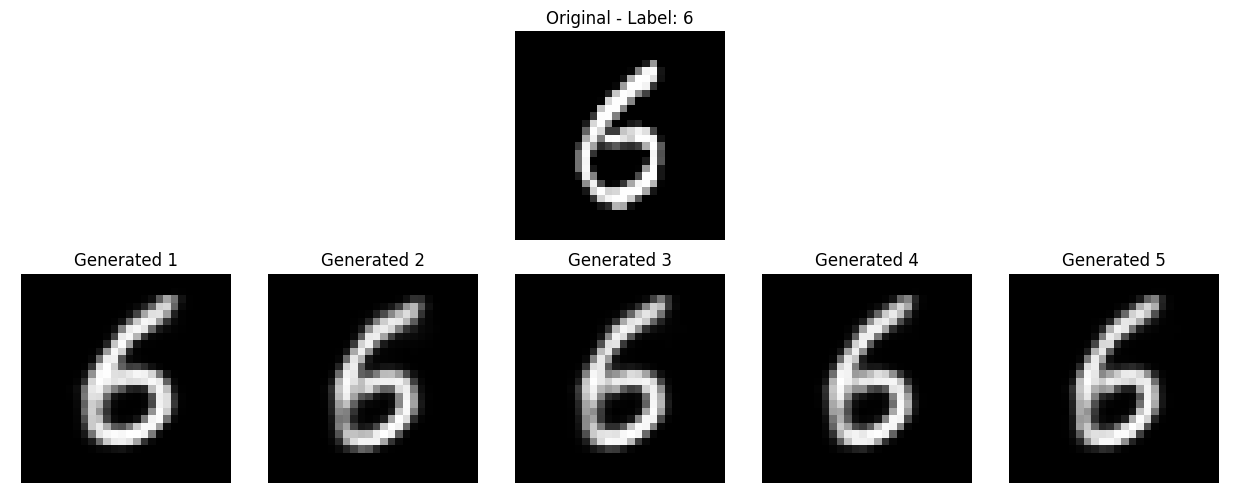 |
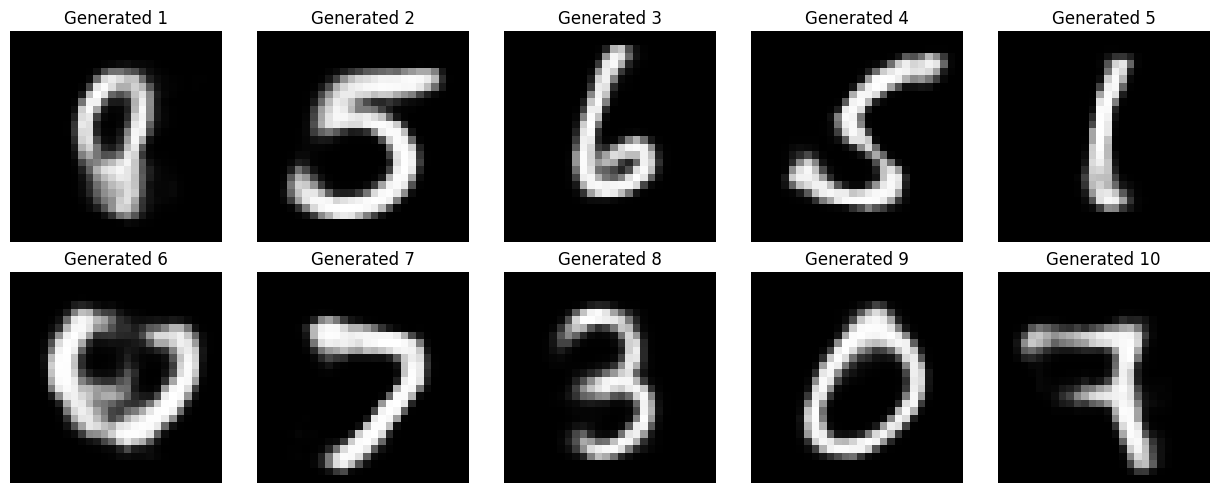 |
| CNN | MSE | 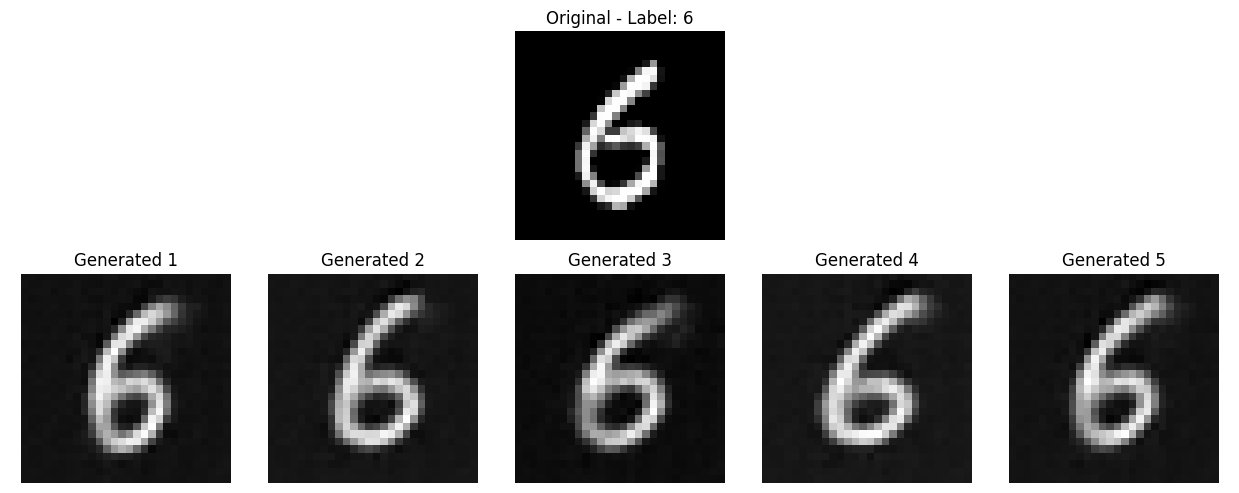 |
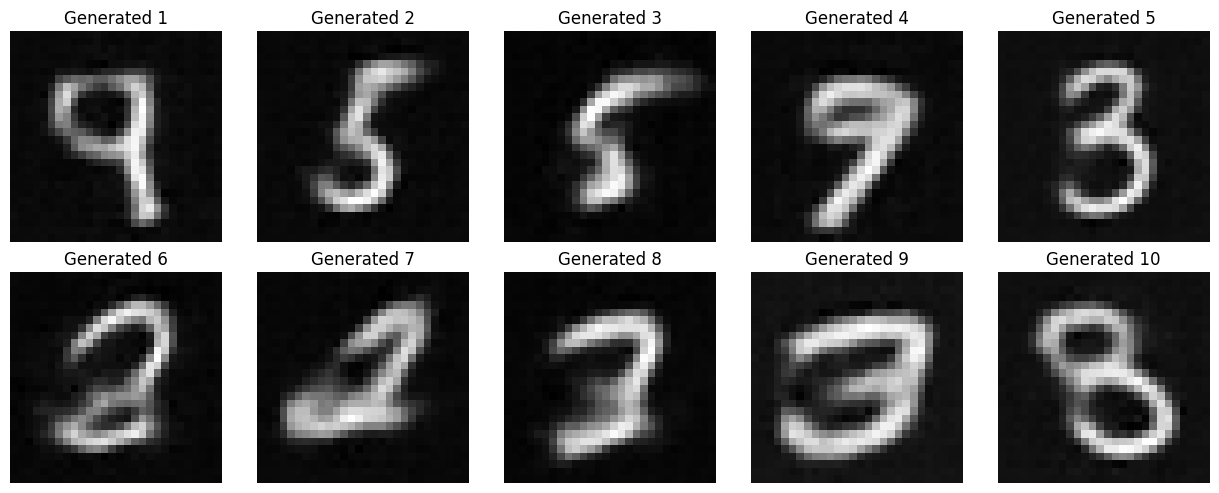 |
- CNN-VAEs outperform FNN-VAEs, likely due to better preservation of image structure.
- BCE loss yields better reconstructions than MSE loss in this experiment.
For detailed code and more visualizations, see the empirical_eval.ipynb notebook.
MIT License